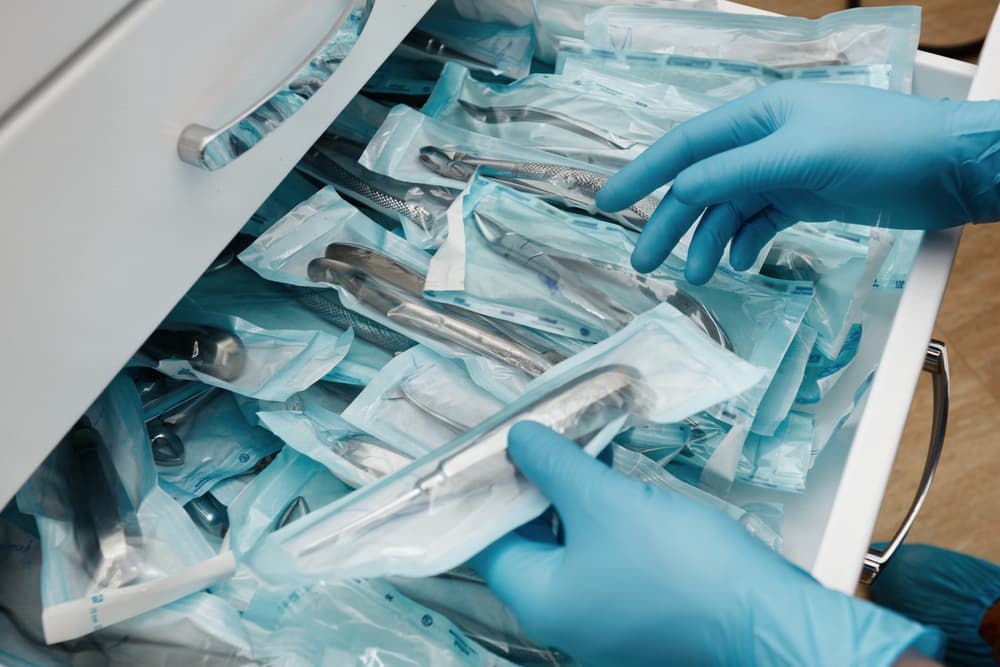The job of a central supply technician belongs to the larger profession area of health technologists and technicians. A central supply technician is responsible for processing, assembling, storing, sterilizing, and distributing medical supplies in the central service departments of hospitals, clinics, and other medical facilities. One has to undergo central supply technician training from a central services technician school to become one.
Here are the things you should know if you want to be a central supply technician.
What Does a Central Supply Technician Do?
The central service department of a healthcare facility is the focal point of all activities surrounding the supplies and machinery required for operations and patient care. Central supply technicians' main duties include sterilizing medical equipment and getting supplies ready for use in procedures and surgeries. Along with these core responsibilities, they also stock crash carts, buy supplies, run sterilizer tests, clean sterilization equipment, and arrange surgical instruments on trays.

Moreover, central service technicians may have a variety of responsibilities depending on the workplace's demands. It may even alter from day to day. But their duties generally center on safeguarding the facility and patients against infections by:
- Cleaning, disinfecting, and sterilizing medical equipment, supplies, and surgical instruments;
- preparing, putting together, packaging, storing, and maintaining an inventory of surgical instruments and medical equipment (including gloves, surgical masks, and needles); and
- supplying equipment and supplies to departments that require it.
Central Supply Technician Career Opportunities
People who appreciate intricate, behind-the-scenes work in a busy setting can find a central service technician career rewarding. It is the ideal position for those who want to work in the healthcare sector but does not want to interact with patients frequently.
The majority of central service technicians are employed by hospitals. But considerable employment growth is available in doctor's offices and clinics, including ambulatory surgical centers, outpatient care centers, nursing homes, and assisted living institutions.
There is a strong demand for central service technicians due to technical improvements in medical supplies, instruments, gadgets, and equipment. Central service is a growing industry and is anticipated to expand as more surgeries are performed.
You might assume greater responsibility or a leadership position as your job progresses. For instance, one might begin with a position like sterile processing technician, advance to a title like a technician, and then eventually land the position of operations manager. With additional central supply technician training, one may become a senior central service technician who manages a team.
Become a Central Supply Technician
A high school diploma and completing a central service technician program are the prerequisites for becoming a central service technician. Although program lengths might vary, they usually range from four to eight months.
You will need to take the Healthcare Sterile Processing Association (HSPA) formerly known as the International Association of Healthcare Central Service Materiel Management (IAHSCMM) exam to become a Certified Registered Central Service Technician (CRCST). This is after finishing a certification program and accruing the necessary hours of practical experience.
The CRCST program is highly recommended for people who work as Sterile Processing Technicians (SPT) or Central Services Technicians (CST) but have never had official, academic sterile processing training. Through this course, currently employed technicians will be prepared to become Certified Registered Central Services Technicians (CRCST).
Begin your path towards a CRCST certification by taking a course at Martinson College. The program will prepare sterile processing technicians for the HSPA's CRCST certification exam. This central services technician school also provides externship and clinical training placement opportunities.
Visit the Martinson College website to learn more about the CRCST certification program.


